| US Ambassador Glyn T. Davies took up his post in Bangkok on October 2, 2015 to take charge of one of the biggest US embassies in the world. In a wide-ranging, exclusive interview at his residence, the career diplomat who joined the State Department in 1980 discussed his very interesting childhood as the son of an American diplomat, the special relationship between the United States and Thailand, and the election of President-elect Donald Trump. words by MAXMILIAN WECHSLER MANY people around the world watched with surprise and some even with disbelief as Donald Trump staged his highly unorthodox election campaign and came out victorious. US Ambassador Glyn T. Davies views the outcome with suitable diplomacy, saying that the most important aspect of the election was that it demonstrated how American democracy works. “We spend 18 months engaged in a passionate national conversation about the future of the United States and, in the end, the President is selected. The voting was close, about 50-50, but Donald Trump was elected, and at noon on January 20, 2017, he will become the 45th president of the United States.” “The election is the culmination of the national conversation among Americans at all levels about every aspect of our future – economic, social, foreign policy, security, and so on. In the wake of our election, there will be some Americans who will protest, who will continue to exercise their right to free speech, but for the next four years we will have a new president and he will take the country forward according to his mandate.” “Donald Trump will choose his Cabinet members, the Senate of the United States will evaluate them and vote on them, and the new US government will be formed. What is important about our system is that those Americans who are disappointed because their candidate did not win know that the conversation goes on. They will evaluate Donald Trump when he is the President of the United States and they will be free to talk about it. Then, in a couple of years, the wheels will spin up again for the next presidential campaign.” |
“Donald Trump will choose his Cabinet members, the Senate of the United States will evaluate them and vote on them, and the new US government will be formed. What is important about our system is that those Americans who are disappointed because their candidate did not win know that the conversation goes on. They will evaluate Donald Trump when he is the President of the United States and they will be free to talk about it. Then, in a couple of years, the wheels will spin up again for the next presidential campaign.”
“As President Obama has said, the office of the president brings changes in the individual who is elected. When you step into the Oval Office as the President of the United States, it has an effect on you because of the responsibilities involved. President Obama says he is not the same man who came into the presidency eight years ago, and this was his way of describing the significant effect the office has on the person who takes up the role.”
The Ambassador stressed the importance of a strong partnership with Thailand to US interests and predicted the alliance will remain strong in every area of cooperation. “From the point of view of the embassy, there’s a great deal of continuity after a change of leadership. There is change, of course, when a new president takes office. There are new policies and new directions in many areas, but the job of representing the United States remains fundamentally the same. The interests of America are deep and broad. We diplomats take our day-to-day orders from the State Department, of course, but regardless of who is in charge, the interests of the United States are broadly the same with priority on the economy, security, our health interests, law enforcement, and people-to-people ties.”
“Our embassy here protects American citizens who live in Thailand. That will remain the same. The Embassy here also oversees all the US federal departments that have business in Thailand, and that will remain the same. Law enforcement, security, health, consular, all this work goes on, and for the most part, it won’t be greatly affected. Obviously there will be policy changes and we will wait and see what they are. When we are given instructions, we will carry them out because this is our job. We serve the President and the people of the United States of America, regardless of what political party we or they may belong to.”
One aspect of US foreign policy which Mr Trump indicated during the campaign that he might change is US-Russian relations. Asked if he is willing to talk to the Russian Ambassador in Bangkok, Mr Davies answered, “I have already talked to the Russian Ambassador since I arrived here. Mr Barsky is a good colleague and experienced and effective diplomat.”
On the subject of whether US media coverage in connection with the presidential campaign was biased, Ambassador Davies said, “I think what has happened in America is that there used to be just a handful of very influential media organisations. Now, there’s a kaleidoscope of media of all kinds. You have big media organisations and they are still important, but they are not as influential as they used to be. In addition to that, social media, websites, blogs, and cable television have gained influence. Like people everywhere, Americans have more choices of where they can look for information. This is the big change. You may look at one organisation and say it is biased, but there are many hundreds more. I think it is a good thing ultimately that there is more competition and a bigger variety of voices to be heard.”
“In some countries media is in some measure tightly controlled by the government. In the United States, you cannot say this is the case. Most American journalists seek objectivity, even as their colleagues who are commentators follow the editorial opinions and lines of their parent media organisation. That is not the same as in systems where journalists self-censor or face intimidation, or governments control, directly or indirectly, many of the media outlets.”
Diplomatic background
“I was born in Kabul, Afghanistan in April 1957. My father was assigned there and it’s always held a special place in my heart,” said Ambassador Davies at the start of the interview. “We left when I was very young, but my father took the family back for a visit when I was 13. He was posted as Consul General in Calcutta then. We stayed in Afghanistan for a week and it left a deep impression. I vividly remember visiting the beautiful Bamiyan valley north of Kabul, the home of the Bamiyan Buddhas, which were the largest and tallest Buddha statues in the world. I climbed up above one of the statues and looked down on the valley. Sadly, the Taliban destroyed these religious and cultural artistic masterpieces with artillery fire in 2001.”
“I don’t have an Afghanistan passport, but I have a soft spot in my heart for the country of my birth. It is a beautiful country. People there are fiercely independent, like Americans and like Thais.”
“We left India in 1970 and travelled home to the United States in an easterly direction. We spent one week in Thailand and I remember it very clearly. I was dazzled by Bangkok. It was different than it is today no skyscrapers, neon lights or crowded highways but the people were the same. I remember warm, wonderful people who were so welcoming, and the food and culture were great. That hasn’t changed. I also still remember that among the beautiful temples, wonderful welcoming people, exotic cuisine and the impressive, powerful Chao Phraya River, there were many American troops in the city.
“My wife Jackie and I returned to Thailand in 1989 on a personal visit with family. We saw a Bangkok that was growing and developing in a rapid, impressive way. So when I came back again in 2015, it was as if I had seen a series of snapshots of the development of this great city over almost half a century. Bangkok continues to grow and prosper in a dramatic way.”
Ambassador Davies decided early on that he liked the diplomatic lifestyle, and like his father, wanted to serve his country, see the world, and understand its people. “I joined the US Department of State in 1980 because my father was a diplomat. I always joke that it showed my lack of imagination, but a lot of children naturally follow their parents into diplomatic service, just as children of career soldiers, business people, and even journalists often take after their parents.”
The Ambassador grew up mostly in Washington, D.C. but aside from Afghanistan and Calcutta, his family also lived in Moscow and Warsaw. Later, when he joined the Foreign Service, he was posted to Australia, Central Africa, France, and the United Kingdom. “We spoke French in Central Africa, so we had a head start when we later went on to France. Given those postings, French is the only language I speak reasonably well besides English,” he said.
“As President Obama has said, the office of the president brings changes in the individual who is elected. When you step into the Oval Office as the President of the United States, it has an effect on you because of the responsibilities involved. President Obama says he is not the same man who came into the presidency eight years ago, and this was his way of describing the significant effect the office has on the person who takes up the role.”
The Ambassador stressed the importance of a strong partnership with Thailand to US interests and predicted the alliance will remain strong in every area of cooperation. “From the point of view of the embassy, there’s a great deal of continuity after a change of leadership. There is change, of course, when a new president takes office. There are new policies and new directions in many areas, but the job of representing the United States remains fundamentally the same. The interests of America are deep and broad. We diplomats take our day-to-day orders from the State Department, of course, but regardless of who is in charge, the interests of the United States are broadly the same with priority on the economy, security, our health interests, law enforcement, and people-to-people ties.”
“Our embassy here protects American citizens who live in Thailand. That will remain the same. The Embassy here also oversees all the US federal departments that have business in Thailand, and that will remain the same. Law enforcement, security, health, consular, all this work goes on, and for the most part, it won’t be greatly affected. Obviously there will be policy changes and we will wait and see what they are. When we are given instructions, we will carry them out because this is our job. We serve the President and the people of the United States of America, regardless of what political party we or they may belong to.”
One aspect of US foreign policy which Mr Trump indicated during the campaign that he might change is US-Russian relations. Asked if he is willing to talk to the Russian Ambassador in Bangkok, Mr Davies answered, “I have already talked to the Russian Ambassador since I arrived here. Mr Barsky is a good colleague and experienced and effective diplomat.”
On the subject of whether US media coverage in connection with the presidential campaign was biased, Ambassador Davies said, “I think what has happened in America is that there used to be just a handful of very influential media organisations. Now, there’s a kaleidoscope of media of all kinds. You have big media organisations and they are still important, but they are not as influential as they used to be. In addition to that, social media, websites, blogs, and cable television have gained influence. Like people everywhere, Americans have more choices of where they can look for information. This is the big change. You may look at one organisation and say it is biased, but there are many hundreds more. I think it is a good thing ultimately that there is more competition and a bigger variety of voices to be heard.”
“In some countries media is in some measure tightly controlled by the government. In the United States, you cannot say this is the case. Most American journalists seek objectivity, even as their colleagues who are commentators follow the editorial opinions and lines of their parent media organisation. That is not the same as in systems where journalists self-censor or face intimidation, or governments control, directly or indirectly, many of the media outlets.”
Diplomatic background
“I was born in Kabul, Afghanistan in April 1957. My father was assigned there and it’s always held a special place in my heart,” said Ambassador Davies at the start of the interview. “We left when I was very young, but my father took the family back for a visit when I was 13. He was posted as Consul General in Calcutta then. We stayed in Afghanistan for a week and it left a deep impression. I vividly remember visiting the beautiful Bamiyan valley north of Kabul, the home of the Bamiyan Buddhas, which were the largest and tallest Buddha statues in the world. I climbed up above one of the statues and looked down on the valley. Sadly, the Taliban destroyed these religious and cultural artistic masterpieces with artillery fire in 2001.”
“I don’t have an Afghanistan passport, but I have a soft spot in my heart for the country of my birth. It is a beautiful country. People there are fiercely independent, like Americans and like Thais.”
“We left India in 1970 and travelled home to the United States in an easterly direction. We spent one week in Thailand and I remember it very clearly. I was dazzled by Bangkok. It was different than it is today no skyscrapers, neon lights or crowded highways but the people were the same. I remember warm, wonderful people who were so welcoming, and the food and culture were great. That hasn’t changed. I also still remember that among the beautiful temples, wonderful welcoming people, exotic cuisine and the impressive, powerful Chao Phraya River, there were many American troops in the city.
“My wife Jackie and I returned to Thailand in 1989 on a personal visit with family. We saw a Bangkok that was growing and developing in a rapid, impressive way. So when I came back again in 2015, it was as if I had seen a series of snapshots of the development of this great city over almost half a century. Bangkok continues to grow and prosper in a dramatic way.”
Ambassador Davies decided early on that he liked the diplomatic lifestyle, and like his father, wanted to serve his country, see the world, and understand its people. “I joined the US Department of State in 1980 because my father was a diplomat. I always joke that it showed my lack of imagination, but a lot of children naturally follow their parents into diplomatic service, just as children of career soldiers, business people, and even journalists often take after their parents.”
The Ambassador grew up mostly in Washington, D.C. but aside from Afghanistan and Calcutta, his family also lived in Moscow and Warsaw. Later, when he joined the Foreign Service, he was posted to Australia, Central Africa, France, and the United Kingdom. “We spoke French in Central Africa, so we had a head start when we later went on to France. Given those postings, French is the only language I speak reasonably well besides English,” he said.
| Third biggest embassy in the world Ambassador Davies didn’t say much about his own distinguished career; his resume speaks for itself. He did say that serving in the Foreign Service for 36 years, he has had many jobs and served in a lot of places. He was more loquacious when asked about the recent US presidential election. “I joined the Foreign Service under President Reagan. I met him once, and I have met all US presidents since, and served under a variety of Republican and Democrat administrations.” Asked how many people work at the Bangkok embassy, Mr Davies said, “Depending on how you count them, the best number to use is about two thousand people. Most of them are Thai citizens and the rest are Americans. I would say that we have about 800 Americans working here. We also have a small but dynamic Consulate General in Chiang Mai, and a few other Americans stationed around Thailand in specialised roles, like with the Drug Enforcement Agency and Peace Corps. Embassy staff work in several different locations around Bangkok. This is a very big embassy. It might be the third biggest embassy in the world, but there are different ways to measure the size of the embassy. Our embassy in Bangkok is the largest US embassy apart from our very large missions in Iraq and Afghanistan. It is our largest embassy in Asia. “We have about 50 different US federal departments here. We have the Health and Human Services Department which oversees offices like the Centres for Disease Control and Prevention (CDC). We have offices under the State, Commerce, Justice, Defense and other departments represented here, and so on. About half of the people who work at the embassy are focused on regional issues and the other half are focused on our bilateral relationship with Thailand.” |
“Why do we have such a big embassy in Bangkok? It’s because of the history between our two countries. We established the embassy here in 1946 at the end of World War Two. Thailand is a treaty ally. We have strong military-to-military relations and what is the most important about Bangkok and Thailand is that it is right in the centre of Southeast Asia.”
“What’s more, this is a country where the people are skilled and talented, and so if you are a US government department and looking for a place to base your operations in Asia, you immediately turn to Bangkok. This is a big, modern city that works. Bangkok has good airline connections to all of Asia and everything else you need to run a big, modern, regional operation.”
“For all these reasons, over the years our embassy has grown to its present size. We very much value our relationship with the Royal Thai government and the Ministry of Foreign Affairs, because they help us facilitate our ability to do this very important job that supports our interests and theirs as well.”
Ambassador Davies praised the senior department heads at the embassy. “Our new Deputy Chief of Mission, Pete Haymond, has extensive experience in Thailand, extending back decades. Our other senior leaders of our Commercial, Law Enforcement, Defense, Health, and AID agencies are experienced and very capable.”
“The embassy is a big and important operation and overseeing it is a significant responsibility. I devote much of my time to ensuring that the embassy is working well together and all are going in the same direction. In any organisation where a lot of people are involved, there are always challenges, but I must say after being in Thailand for over a year, that there haven’t been that many. This is because of all of the good people we have working here.”
“A big part of the work of the embassy is looking after the very large number of Americans in the country. This includes a large expat community and about 850,000 American tourists a year. It’s difficult to say exactly how many Thais visit the United States, but we issued nearly 60,000 visas out of this embassy in 2015. There are over 7,000 Thai students in US colleges and universities.”
Bilateral cooperation
“We have very strong relationship with Thailand, and one of the reasons we have a big embassy is because we do so much together. One of the areas of cooperation that is of great benefit to Thailand, the United States, and the whole word, is the health relationship. I wasn’t completely aware of the extent of this bilateral cooperation on health issues before coming back. The CDC has a big presence here, as does the Armed Forces Research Institute of Medical Science. It has been here for over 60 years.”
“The United States and Thailand have worked together on medical challenges for three generations and have achieved some great results and breakthroughs, such as when Thailand announced the elimination of the transmission of HIV/AIDS from mother-to-child in the country. This was a great accomplishment for Thailand and for Thai doctors and researchers. We are proud of the fact that our medical cooperation played a role. The vaccination that prevents Japanese encephalitis also came from cooperation between Thai and US researchers and medical professionals. Very good research is being done on malaria, and more recently on the Zika virus. More than 20 percent of the people at the embassy are involved in health-related work which helps ordinary people live better lives, and we are proud of that as an example of cooperation between the United States and Thailand.”
“Of course, another very big area of cooperation is in security. This includes military-to-military cooperation, and not just Cobra Gold, which is the largest multi-lateral military exercise in Asia. But there are 80 other joint Thai-US activities and exercises in the course of the year. We are working together to maintain security and peace in this part of the world.”
“Our law enforcement relationship is also quite impressive. We are working to protect wildlife and stop human traffickers, as well as more common criminals who take advantage of globalization to pursue illegal activities in Southeast Asia. We work very closely with the Thai authorities including the Royal Thai Police and Department of Special Investigation.
“Economic cooperation is quite extensive. The United States is the third largest trading partner of Thailand after China and Japan. US companies have invested almost US$50 billion in this country. Ford Motor Company sold its first car in Thailand a century ago. When US companies come here they come to stay. We invest in people. American technology, combined with the talent of the Thai people, is a partnership which has created a quarter-million quality jobs currently for Thais. Across a wide spectrum of activities, the United States and Thailand work together in ways that also benefit ASEAN and the world.
The special US-Thai relationship
“During the Vietnam War, 50,000 Americans in uniform walked the streets of Bangkok, Pattaya, and other places. The soldiers left when the war ended, but America stayed on in a more important way. In terms of the alliance, friendship and political links that we formed, the United States never left Thailand. In those years, something very important happened. Thailand’s position in the world rose. US investment in Thailand has also risen steadily since those days. The American Chamber of Commerce in Thailand has 800 member companies. They are not all American companies but all have a strong nexus to both Thailand and the United States.
“In the second half of the 20th century, many good things happened. The United States was once a donor nation providing assistance to Thailand. Now Thailand no longer needs assistance. It is an industrialised, middle-income economic power. So the relationship changed in the late 1990s. The United States and Thailand became partners in all the important issues affecting Thailand.”
“Some people talk about a kind of modern great game of world powers competing for dominance in Thailand. I think this is a ridiculous way of looking at things. Thailand has always been fiercely independent and free and I believe it always will be. We all know that ‘Thai’ means ‘free’, and no country has done more to support that freedom throughout history than the United States. That was certainly true in 19th century, it was true in the 20th century, and it will be true in the 21st century. Thailand is a strong sovereign state and the United States has pledged to support its freedom and independence. We look on with pride as Thailand builds strong ties with the nations of the world, including China and Russia, but we very much hope that our 200-year-old alliance will continue to grow and strengthen. I think it will, because it has benefited and continues to benefit both Thailand and the United States.”
The ASEAN alliance
“We are very supportive of ASEAN, and President Obama has worked hard to show this support. He was the first president to appoint an ambassador to ASEAN in Jakarta. President Obama was also the first American president to invite ASEAN leaders to the United States for a summit, which was held earlier this year.
“We support ASEAN because we believe that, as the regional grouping grows and becomes stronger economically and strategically, this in turn helps ASEAN member-states to grow and to become stronger economically as well as politically. We hope that the voice of ASEAN will be listened to more by countries around the world. If you look at Asia today, ASEAN is probably the multi-lateral grouping with the most positive track record and this has been true for decades. Southeast Asia is now the most important part of Asia. It is the ‘young’ part of Asia; it is growing economically, it is a crossroads of global trade and it is very wealthy in terms of resources. It has been a source of stability for the region. That’s why the United States under President Obama has given very careful attention to building strong ties with ASEAN, and I am convinced that this will be the case under President Trump as well.”
The Ambassador said he isn’t worried about the rise of the BRICS (Brazil, Russian, India, China and South Africa) grouping or any effect it might have on the dominance of the US dollar. “What is important is that nations peacefully and diplomatically arrange themselves in all kinds of different groupings. This is important to knock down barriers between countries. What we are for is more economic opportunity and interchange among nations. My job here is not to try to expand or protect the dominance of the US dollar.”
“This is not the 20th Century; the Cold War is over. It is a multipolar world and we want the ten countries of ASEAN with a combined population of 650 million people to continue to work together and to become stronger and more united in terms of their outlook. For one thing, this means that the United States will have stronger markets for our goods.”
American influence in the world
“I believe that in the grand sweep of history, the influence of America has been very positive and healthy. In 1946-1947 you had less than three percent of the world’s people, Americans, creating 50 percent of the world’s wealth, goods and services. This was always ultimately unhealthy. So what did America set out to do? In Europe we installed the Marshall Plan and in north Asia we worked to develop strong relationships with Japan and the Republic of Korea and help these countries develop economically. We have also applied this approach in Southeast Asia, particularly in Thailand.”
“We sought to help these countries develop economically and strengthen themselves politically. We knew it didn’t make sense for the United States to be creating half of the world’s goods and services. We wanted markets for our goods and we wanted to benefit from multilateral trade as both exporters and importers. And we wanted friends and partners in the world, especially during the period of great struggle that we call the Cold War. That was also a very healthy thing for the world.”
“Thank goodness that period of time is over and now we are in a multipolar world. There are new challenges and threats like global warming and international terrorism, but there is much more opportunity for people because the world is connected. Young people have the world in their pockets. How amazing is that? A farmer can check the price of his crop on the world market. These are good things.”
“The United States wants to position itself as a country that brings benefits to the globalised world. The world is coming together whether we want it to or not. We need to deal with the threats and we need partners to do that. Thailand is right in the center of a very dynamic part of the world and it is therefore very important for us.”
“The business of America is friendship and cooperation, and what we want is strong and positive relations with peaceful companions who also want to take advantage of the opportunities the new globalised world brings. We want to expand the pie, not to control it, so that everybody benefits.”
Personal
In his free time, the Ambassador reads a lot, especially history, and gets regular exercise, but his favourite pastime is travel. “Jackie and I both love to travel. We’ve been all over the Kingdom, from Chiang Rai to Khon Kaen to Songkhla. We love Chiang Mai, what a wonderful city that is. We also love to get around Bangkok and see its hidden corners. We’ve been to Koh Chang twice. We like the natural splendours of Thailand, the beaches, the waterfalls and the natural parks.”
In a more official capacity the ambassador has visited Rayong to get a look at the area’s dynamic industrial economic development, and regularly travels throughout the Kingdom to talk to governors, visit factories, schools and universities, and other individuals from all walks of Thai life.
The Ambassador and his wife study the history of Thailand and ancient Ayutthaya, and they are taking Thai language classes together. The Ambassador doesn’t find the language easy, but says it is beautiful. “I love the sound of spoken Thai. It is a musical language, but when you start studying at the age of 58, it is a bit of a challenge. We continue to study every week and we keep learning bit by bit. The trick is to take in more than what slips away.”
“During the Vietnam War, 50,000 Americans in uniform walked the streets of Bangkok, Pattaya, and other places. The soldiers left when the war ended, but America stayed on in a more important way. In terms of the alliance, friendship and political links that we formed, the United States never left Thailand. In those years, something very important happened. Thailand’s position in the world rose. US investment in Thailand has also risen steadily since those days. The American Chamber of Commerce in Thailand has 800 member companies. They are not all American companies but all have a strong nexus to both Thailand and the United States.
“In the second half of the 20th century, many good things happened. The United States was once a donor nation providing assistance to Thailand. Now Thailand no longer needs assistance. It is an industrialised, middle-income economic power. So the relationship changed in the late 1990s. The United States and Thailand became partners in all the important issues affecting Thailand.”
“Some people talk about a kind of modern great game of world powers competing for dominance in Thailand. I think this is a ridiculous way of looking at things. Thailand has always been fiercely independent and free and I believe it always will be. We all know that ‘Thai’ means ‘free’, and no country has done more to support that freedom throughout history than the United States. That was certainly true in 19th century, it was true in the 20th century, and it will be true in the 21st century. Thailand is a strong sovereign state and the United States has pledged to support its freedom and independence. We look on with pride as Thailand builds strong ties with the nations of the world, including China and Russia, but we very much hope that our 200-year-old alliance will continue to grow and strengthen. I think it will, because it has benefited and continues to benefit both Thailand and the United States.”
The ASEAN alliance
“We are very supportive of ASEAN, and President Obama has worked hard to show this support. He was the first president to appoint an ambassador to ASEAN in Jakarta. President Obama was also the first American president to invite ASEAN leaders to the United States for a summit, which was held earlier this year.
“We support ASEAN because we believe that, as the regional grouping grows and becomes stronger economically and strategically, this in turn helps ASEAN member-states to grow and to become stronger economically as well as politically. We hope that the voice of ASEAN will be listened to more by countries around the world. If you look at Asia today, ASEAN is probably the multi-lateral grouping with the most positive track record and this has been true for decades. Southeast Asia is now the most important part of Asia. It is the ‘young’ part of Asia; it is growing economically, it is a crossroads of global trade and it is very wealthy in terms of resources. It has been a source of stability for the region. That’s why the United States under President Obama has given very careful attention to building strong ties with ASEAN, and I am convinced that this will be the case under President Trump as well.”
The Ambassador said he isn’t worried about the rise of the BRICS (Brazil, Russian, India, China and South Africa) grouping or any effect it might have on the dominance of the US dollar. “What is important is that nations peacefully and diplomatically arrange themselves in all kinds of different groupings. This is important to knock down barriers between countries. What we are for is more economic opportunity and interchange among nations. My job here is not to try to expand or protect the dominance of the US dollar.”
“This is not the 20th Century; the Cold War is over. It is a multipolar world and we want the ten countries of ASEAN with a combined population of 650 million people to continue to work together and to become stronger and more united in terms of their outlook. For one thing, this means that the United States will have stronger markets for our goods.”
American influence in the world
“I believe that in the grand sweep of history, the influence of America has been very positive and healthy. In 1946-1947 you had less than three percent of the world’s people, Americans, creating 50 percent of the world’s wealth, goods and services. This was always ultimately unhealthy. So what did America set out to do? In Europe we installed the Marshall Plan and in north Asia we worked to develop strong relationships with Japan and the Republic of Korea and help these countries develop economically. We have also applied this approach in Southeast Asia, particularly in Thailand.”
“We sought to help these countries develop economically and strengthen themselves politically. We knew it didn’t make sense for the United States to be creating half of the world’s goods and services. We wanted markets for our goods and we wanted to benefit from multilateral trade as both exporters and importers. And we wanted friends and partners in the world, especially during the period of great struggle that we call the Cold War. That was also a very healthy thing for the world.”
“Thank goodness that period of time is over and now we are in a multipolar world. There are new challenges and threats like global warming and international terrorism, but there is much more opportunity for people because the world is connected. Young people have the world in their pockets. How amazing is that? A farmer can check the price of his crop on the world market. These are good things.”
“The United States wants to position itself as a country that brings benefits to the globalised world. The world is coming together whether we want it to or not. We need to deal with the threats and we need partners to do that. Thailand is right in the center of a very dynamic part of the world and it is therefore very important for us.”
“The business of America is friendship and cooperation, and what we want is strong and positive relations with peaceful companions who also want to take advantage of the opportunities the new globalised world brings. We want to expand the pie, not to control it, so that everybody benefits.”
Personal
In his free time, the Ambassador reads a lot, especially history, and gets regular exercise, but his favourite pastime is travel. “Jackie and I both love to travel. We’ve been all over the Kingdom, from Chiang Rai to Khon Kaen to Songkhla. We love Chiang Mai, what a wonderful city that is. We also love to get around Bangkok and see its hidden corners. We’ve been to Koh Chang twice. We like the natural splendours of Thailand, the beaches, the waterfalls and the natural parks.”
In a more official capacity the ambassador has visited Rayong to get a look at the area’s dynamic industrial economic development, and regularly travels throughout the Kingdom to talk to governors, visit factories, schools and universities, and other individuals from all walks of Thai life.
The Ambassador and his wife study the history of Thailand and ancient Ayutthaya, and they are taking Thai language classes together. The Ambassador doesn’t find the language easy, but says it is beautiful. “I love the sound of spoken Thai. It is a musical language, but when you start studying at the age of 58, it is a bit of a challenge. We continue to study every week and we keep learning bit by bit. The trick is to take in more than what slips away.”
|
BACKGROUND OF H.E. MR GLYNT T. DAVIES
· Ambassador Glyn T. Davies was nominated by President Obama on April 14, 2015, confirmed by the Senate on August 5, and sworn in on September 14, 2015. · He previously served as the Special Representative of the US Secretary of State for North Korea Policy from January 2012 to November 2014. He was responsible for coordinating US involvement in the Six-Party Talks process, as well as all other aspects of US security, political, economic, human rights, and humanitarian assistance policy regarding North Korea. · A career member of the Senior Foreign Service, Ambassador Davies also served as the Permanent Representative of the United States to the International Atomic Energy Agency and the United Nations Office in Vienna from June 2009 until November 2011. He was charged with advancing US interests in countering the proliferation of nuclear weapons, terrorism, organized crime, and corruption, while promoting the peaceful uses of nuclear energy. |
· Other senior-level diplomatic assignments include: Principal Deputy Assistant Secretary of State for East Asian and Pacific Affairs from August 2007 to June 2009; Acting Assistant Secretary in the Bureau of Democracy, Human Rights and Labour in 2005; Deputy Assistant Secretary for European Affairs from 2004 to 2005; Political Director of the U.S. Presidency of the G-8 (with the rank of Ambassador) from 2003 to 2004; Deputy Chief of Mission (with the rank of Minister) at the US Embassy in London, United Kingdom from 1999-2003; Executive Secretary of the White House National Security Council Staff from 1997 to 1999; Deputy Spokesman and Deputy Assistant Secretary of State for Public Affairs from 1995 to 1997; and Director of the State Department Operations Center from 1992 to 1994.
· Ambassador Davies served as Deputy Political Counselor at the American Embassy in Paris and in the European Bureau’s Office of European Security and Political Affairs, working primarily on NATO nuclear and disarmament issues. He was a Special Assistant to Secretary of State George Shultz and served his first five years in the Foreign Service at the American Consulate General in Melbourne, Australia and the American Embassy in Kinshasa, Zaire (now the Congo).
· Ambassador Davies earned a Bachelor of Science in Foreign Service from Georgetown University in 1979. He later earned a Master of Science, with distinction, in National Security Strategy from the National War College at Ft. McNair, Washington, D.C. He and his wife Jacqueline M. Davies, a lawyer, have two daughters and two granddaughters.
· Ambassador Davies served as Deputy Political Counselor at the American Embassy in Paris and in the European Bureau’s Office of European Security and Political Affairs, working primarily on NATO nuclear and disarmament issues. He was a Special Assistant to Secretary of State George Shultz and served his first five years in the Foreign Service at the American Consulate General in Melbourne, Australia and the American Embassy in Kinshasa, Zaire (now the Congo).
· Ambassador Davies earned a Bachelor of Science in Foreign Service from Georgetown University in 1979. He later earned a Master of Science, with distinction, in National Security Strategy from the National War College at Ft. McNair, Washington, D.C. He and his wife Jacqueline M. Davies, a lawyer, have two daughters and two granddaughters.

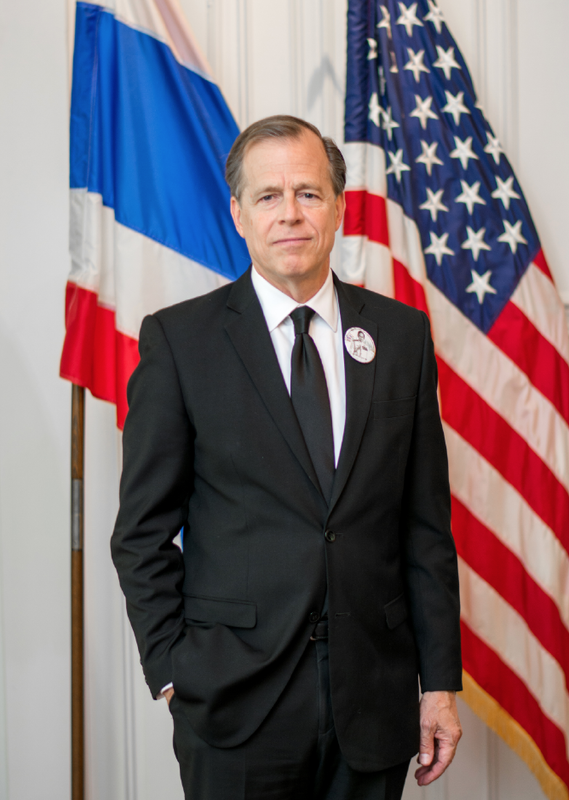
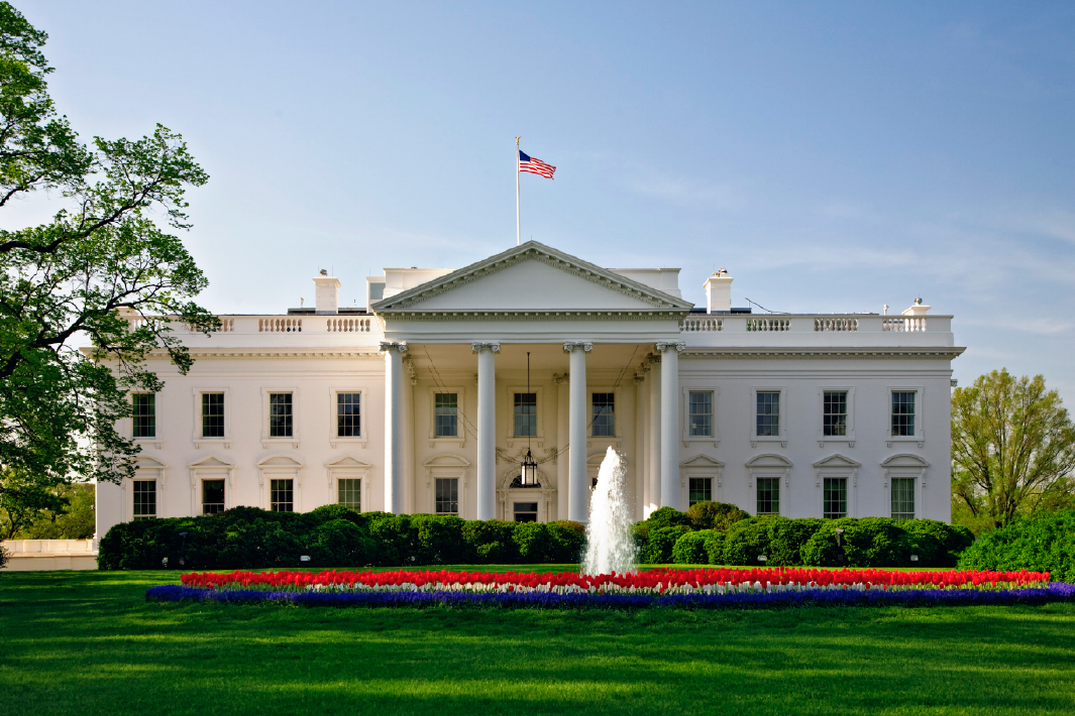
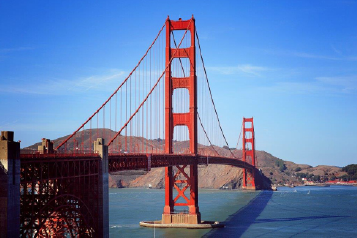
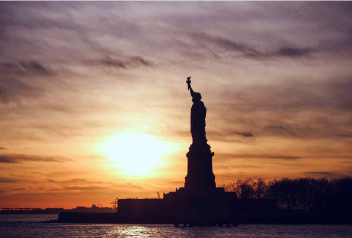
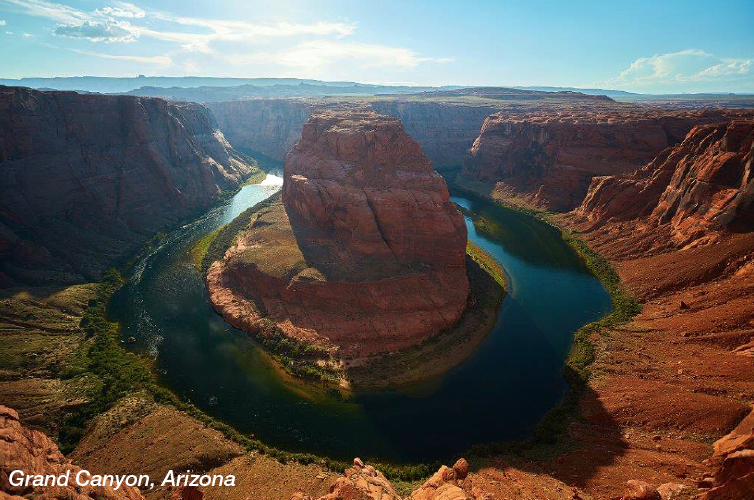
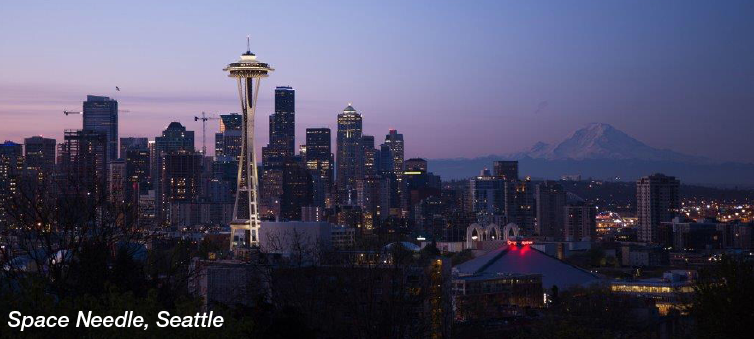
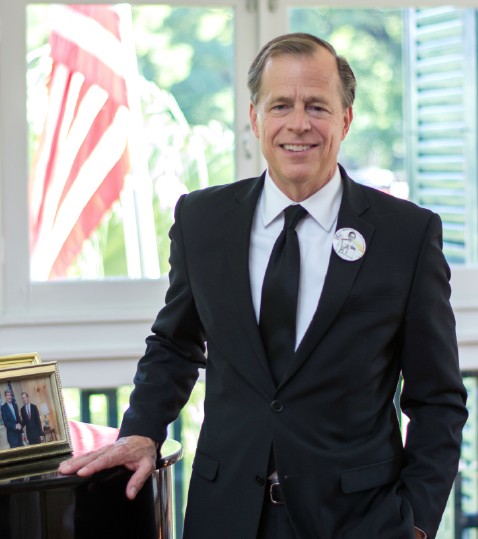
 RSS Feed
RSS Feed
















